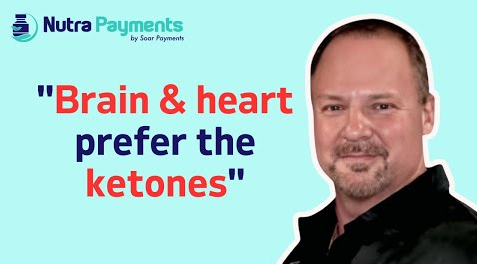Lies, Damned Lies, and Keto Eating: Where Mainstream Keto'ers Go Wrong
Don't believe everything you read/see/hear/think you know about the ketogenic diet.
Why?
Because just like everything else, the mainstream adaptation of an idea often does not fully represent the original idea, properly.
On a broader scale, this is known as the extremes informing the median. We have created a large body of knowledge and understanding of how to train & diet athletes, get professionals in the best shape of their lives and created some life-changing physique transformations.
By now, we've established that health ailments as a result of mainstream pseudoscience and the health and fitness industry have forced us to look for better answers. This lead necessitated a depth of understanding in preventative health, ancestral eating, human optimization, and applied biochemistry.
On one hand, we have the Ferrari's and on the other, we have the broken down Pontiacs. But by understanding the extremes, we can inform the median (where most of you fall on the curve).
When the mainstream does this (like, say, in politics), an idea often gets reworked instead of refined. As illustrated above, this can be advantageous, but it also results in misinterpretations. Such is the case with the keto diet.
Keto Dieting Isn't Safe From Bro-Science
Let's take a look at some mainstream keto myths that just won't quit.
- You can eat all the dairy and cheese you want:
This is something we do not recommend. This comes from the camp that looks at the ketogenic diet as a simple ratio of fat-protein-carb. Not long ago, the 'if it fits your macros' (IIFYM) trend blew up in the health & fitness community. This is a similar idea wherein dieters were able to fit in some treats here or there to satisfy their junk food fix, so long as they didn't overindulge-hence, being able to 'fit' the food in your macros/diet. Unfortunately, many abused this, and this leads to people taking this concept a mile when they were really given an inch!
While we are generally approving of most people getting in their favorite foods in moderation, this is not an excuse to eat any old food.
DO NOT fragment the diet into a ratio or this, or that. Attention to where the food is coming from (organic, grass-fed, free-range, wild-caught, pasture-raised, etc.) absolutely matters.
- Keto Eating is THE best diet:
Don't call us the keto guys. "The man who grasps principles can successfully select his own methods. The man who tries methods, ignoring principles, is sure to have trouble." -Ralph Waldo Emmerson
The ketogenic diet is merely one method used which stems from a depth of understanding of principles, such as biochemistry, physiology, and everything in-between. A diet with some states of ketosis is what we’re after-not pure strict keto for all. Spending time in states of ketosis is the principle here-there are different in-road methods to get there for unique individual situations.
While we hold firm that certain biological principles-such as everyone having a fat-adapted metabolism-is key, we do not exclusively recommend the ketogenic diet across the board for anyone and everyone.
Informed tests, thinking, and n=1 is a must for ANY new diet, training regimen, or health intervention you test drive.
- Bon Voyage, Carbohydrates:
As we've discussed before, ketogenic eating does not mean the end of carbs. Rather, a person's physiology and goal will dictate their carb consumption.
Athletes and those performing moderate-to-high-intensity glycolytic activities (such as jiu-jitsu or strength training) often do better with some variation of carb intake (the various methods of which we cover in the Keto Camp book and course).
Often women (particularly those who find themselves in the female athlete triad) tend to be healthier, feel better, and perform more optimally with some more carbohydrates than typically allotted on a ketogenic diet.
Either way, do not think that keto eating means you're giving up a macronutrient for good. Our aim is not to create an army of carb-phobics.
- Restrict ALL Carbs:
Okay, so we've established that keto eating does not mean ditching all carbs. But what about when someone is eating strict-ish keto? How about then?
One of the biggest myths about keto eating is that carbs of all kinds need to be restricted, including vegetables.
This leads to a misapplication of the diet, in which dieters miss out on vital nutrients because they're afraid of breaking the diet.
With anything, our goal should be best practice, not following specific sets of guidelines or rules for the sake of doing so.
Fibrous, non-blood sugar-spiking vegetable carbs, such as kale, spinach, broccoli, cauliflower, cucumber, zucchini, etc. SHOULD absolutely be included in ANY diet en masse.
Certain autoimmune conditions, allergies, and/or medical complications may preclude some from eating vegetables without restrictions, but unless you fall in this category somewhere you SHOULD be eating vegetables aplenty.
These types of fibrous carbs WILL NOT take you out of ketosis. In fact, at the end of the day, if you put everything you ate on a plate, fibrous vegetable carbs should occupy the largest volume of foods eaten, whether it's on a ketogenic diet, or otherwise.
As you can see, the understanding and application of what exactly keto is has been misinterpreted somewhat by the mainstream. As with anything, arm yourself with information before taking a leap and continue to do your best to refine the process.
Remember, the goal with keto eating (or healthy diet) is to be able to transition into a healthy nutritional lifestyle, not to do a 6/12/etc. program.
Stay informed! We'll help provide FREE information if you sign up HERE (insert guide here) for a drop-dead simple crash course in getting set-up on a keto diet.
Have another mainstream myth you think is just as big as these that we missed? Shoot it our way and we'll address it!

 ACCOUNT
ACCOUNT
 CART
CART





